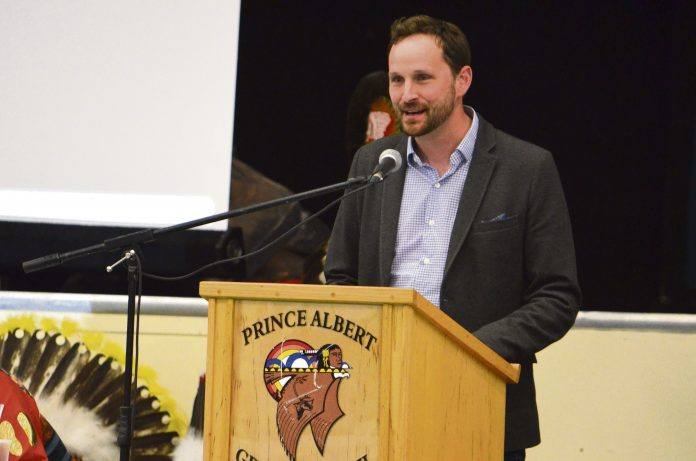
The provincial government isn’t doing enough to support northern Saskatchewan or the Indigenous population, the NDP says.
The provincial budget, tabled on April 10, included a 1.5 per cent decrease for targeted First Nations and Métis funding. According to a backgrounder document attached to the press release, $400,000 of that reduction came from a decrease in funding targeted to First Nations and Métis Initiatives and Institutions. The other decrease came in gaming agreements.
The budget also included new incentives for budding technology companies and value-added agriculture through tax credits, industries typically more prevalent in the southern part of the province.
The budget did include $750,000 for a new four-year mineral exploration incentive.
“If the government truly wanted to partner with First Nations, Métis and northern people, they could come up with more dollars for training programs and partnerships with First Nations and Métis citizens in the province,” said Doyle Vermette, the MLA for Cumberland, critic for northern Saskatchewan and associate critic for First nations and Métis Relations.
“The numbers of unemployment are so high when it comes to on reserve First Nations, off reserve First Nations and Métis clients. We’ve seen the government again not committing to supporting First Nations, Métis and the Indigenous population in the north but also in the rest of the province.”
According to Statistics Canada numbers from 2017, the area referred to as Prince Albert and Northern Saskatchewan had the highest unemployment rate and the lowest employment rate. Data gleaned from the 2016 census showed unemployment rates for Indigenous people, especially First Nations, significantly higher than the non-Indigenous population across the board, regardless of education level achieved.
Finance Minister Donna Harpauer acknowledged no new finding initiatives specific to First Nations were included in this budget. She did, however, point out other projects the Saskatchewan Party government has put forward.
She touted the education task force put forward, as well as heavy investment in education specific for First Nations people. She also spoke to economic growth overall.
“We feel this budget will support a growing economy, and the economy is extremely important,” she said.
“The infrastructure dollars have in the past, and are going to continue in this budget … supporting our economy and providing jobs for all people in Saskatchewan.”
A follow-up email sent by the government to the Daily Herald highlighted all initiatives taken by the Sask. Party to improve outcomes in First Nations and in northern communities.
The email touted $5.1 million in funding for programs and services connected to the Joint Task Force on improving education and employment outcomes for First nations and Métis people. It also referenced increased SaskTel services into the province’s north, as well as increased funding envelopes for health and social services. There is also $500,000 to continue to expand the use of medical robotic technology in northern communities.
In the health care sector, the government increased funding for community mental health and addictions supports, HIV supports and addictions funding in Prince Albert and Northern Saskatchewan.
The other initiatives highlighted in the email were not new programs. Instead, the email highlighted increases in funding over time between fiscal years 2007-08 and 2018-19.
While NDP leader Ryan Meili did praise the increase to HIV supports, they argued not enough is being done on the ground floor to improve education outcomes for postsecondary students.
“When we see the numbers on unemployment, why would a government not invest in postsecondary education within First Nations and Métis organizations?” Vermette asked.
“Let’s support the institutes that work with First nations and partner with them, and those Aboriginal organizations that do the great work of trying to get our young people educated and get training and into jobs. It’s very successful if you have a commitment of a government. We don’t see that happening.”
Vermette also suggested the provincial government do more advocacy with the federal government to close the funding gap between the provincial and federal K-12 systems. The Federal government pays for K-12 education for status Indians under its constitutional requirements. That funding is far less than what is provided by the province for the non-Indigenous population.
“This government doesn’t mind picking fights with the Federal Government on many other issues, why aren’t they … picking a fight with the feds over that? I think in the north, we would benefit, especially our First Nations on reserve.”

